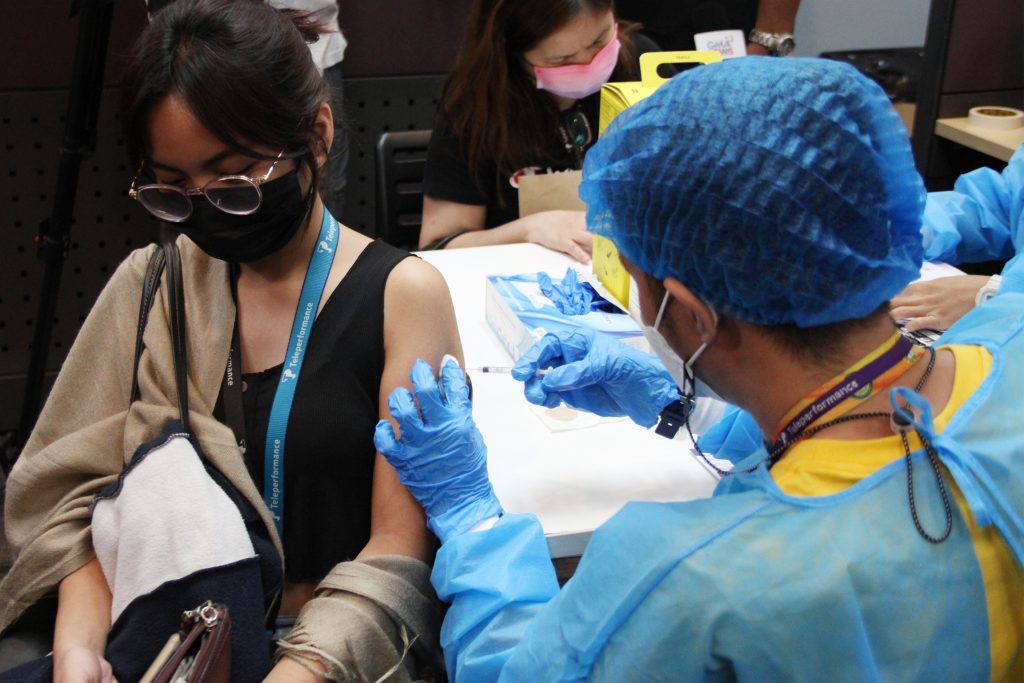News
Mandatory benefits for health workers OK’d

MANILA – President Rodrigo Duterte has signed into law a measure granting mandatory continuing benefits to public and private health workers during the coronavirus disease 2019 (Covid-19) pandemic and other future public health emergencies.
Republic Act (RA) 11712, inked by Duterte on April 27, covers all healthcare and non-healthcare workers, regardless of employment status, during the Covid-19 or other public health emergencies that may be declared in the future, from the time of the declaration of the public health emergency until lifted by the President.
Under RA 11712, health care and non-healthcare workers are referred to as individuals working in medical facilities and vaccination sites, as well as those involved in Covid-19 response efforts, outsourced personnel exposed to Covid-19, or other public health threats, and village health workers.
The law mandates the government to grant qualified beneficiaries a health emergency allowance (HEA) for every month of service during a state of public health emergency.
The amount, according to the law, will be based on the risk exposure categorization.
Those deployed in “low risk areas” will receive at least PHP3,000, those in “minimum risk areas” will get at least PHP6,000, and those in “high risk areas” will be given at least PHP9,000.
“The HEA shall be released monthly in addition to the existing benefits that the health care and non-healthcare workers receive,” RA 11712 read. “The HEA shall be released in full if a healthcare worker or non-healthcare worker physically renders services for at least 96 hours in a month; otherwise, the benefit shall be prorated.”
Subject to the President’s approval and in consultation with the Department of Budget and Management (DBM), the Department of Health (DOH) may increase the amounts of the HEA, taking into consideration the cost of necessary expenses incurred by health care and non-healthcare workers in rendering services at the time of public emergency.
The law provides compensation to those who have contracted Covid-19 in the line of duty.
In case of death, PHP1 million will be provided to the heirs of the covered individuals.
In case of sickness, PHP100,000 will be given to the covered individuals with severe or critical cases, while PHP15,000 will be provided to those with mild or moderate cases.
The compensation must be given to the beneficiaries not later than three months after the date of confinement or death and upon submission of complete and compliant documentary requirements.
Full Philippine Health Insurance Corporation (PhilHealth) coverage will be granted to hospitalized health workers due to Covid-19.
For future national public health emergencies, PhilHealth coverage for direct health care costs of those admitted to hospital will be subject to fund availability and the Health Technology Assessment Council (HTAC) assessment and recommendation.
Regular testing of health and non-health workers, as often as necessary, will be covered by PhilHealth.
The benefits under RA 11712 will have retroactive application from July 1, 2021 and will remain in full force and effect during the state of national public health emergency as declared by the President.
“Nothing in this Act shall be construed to reduce any existing allowance and benefit under Republic Act No. 7305 or the ‘Magna Carta of Public Health Workers’ and other existing laws, decrees and issuances, executive orders, and contracts or agreements between health care and non-healthcare workers and employers,” the law read.
An ad hoc grievance board will also be created in the DOH regional offices to receive, investigate, adjudicate, and recommend actions to arrive at a settlement of complaints related to the failure of granting the benefits.
The grievance board will be composed of a grievance officer from the DOH, a representative from the health professional organizations, and an arbitration officer from the Department of Labor and Employment exercising jurisdiction where the concerned hospital is located.
The necessary funding for the implementation of RA 11712 will be charged against the available appropriations of the DOH and any other sources that may be identified by the DBM.
The budget needed for its continuous implementation during the state of national public health emergency will be included in the General Appropriations Act, subject to existing budgeting, accounting and auditing rules and regulations.
RA 11712, which was made public on Friday, takes effect immediately after its publication in the Official Gazette or a newspaper of general circulation.





















